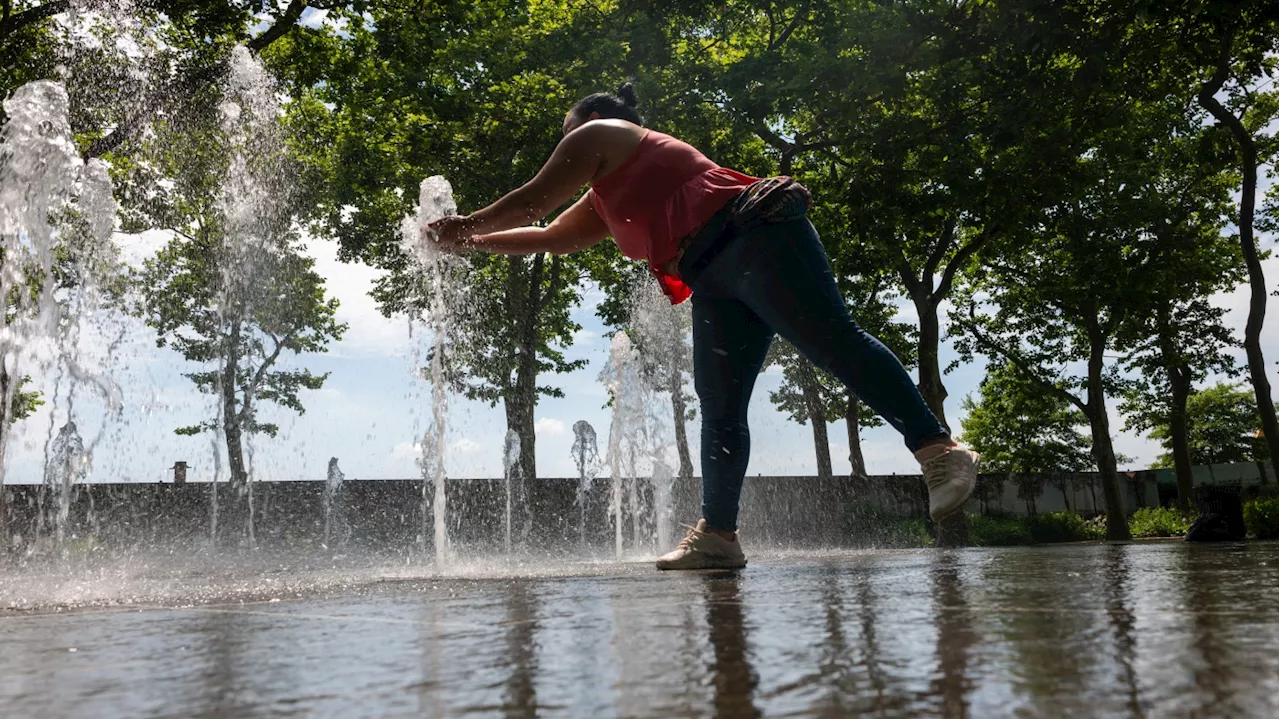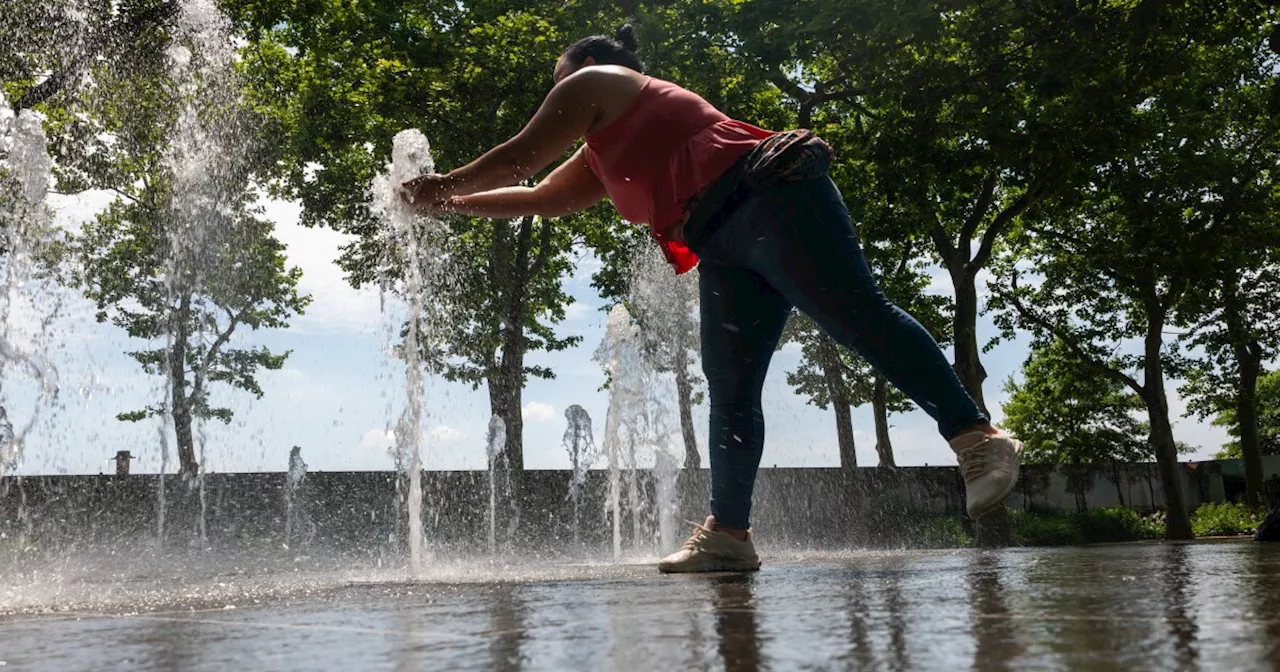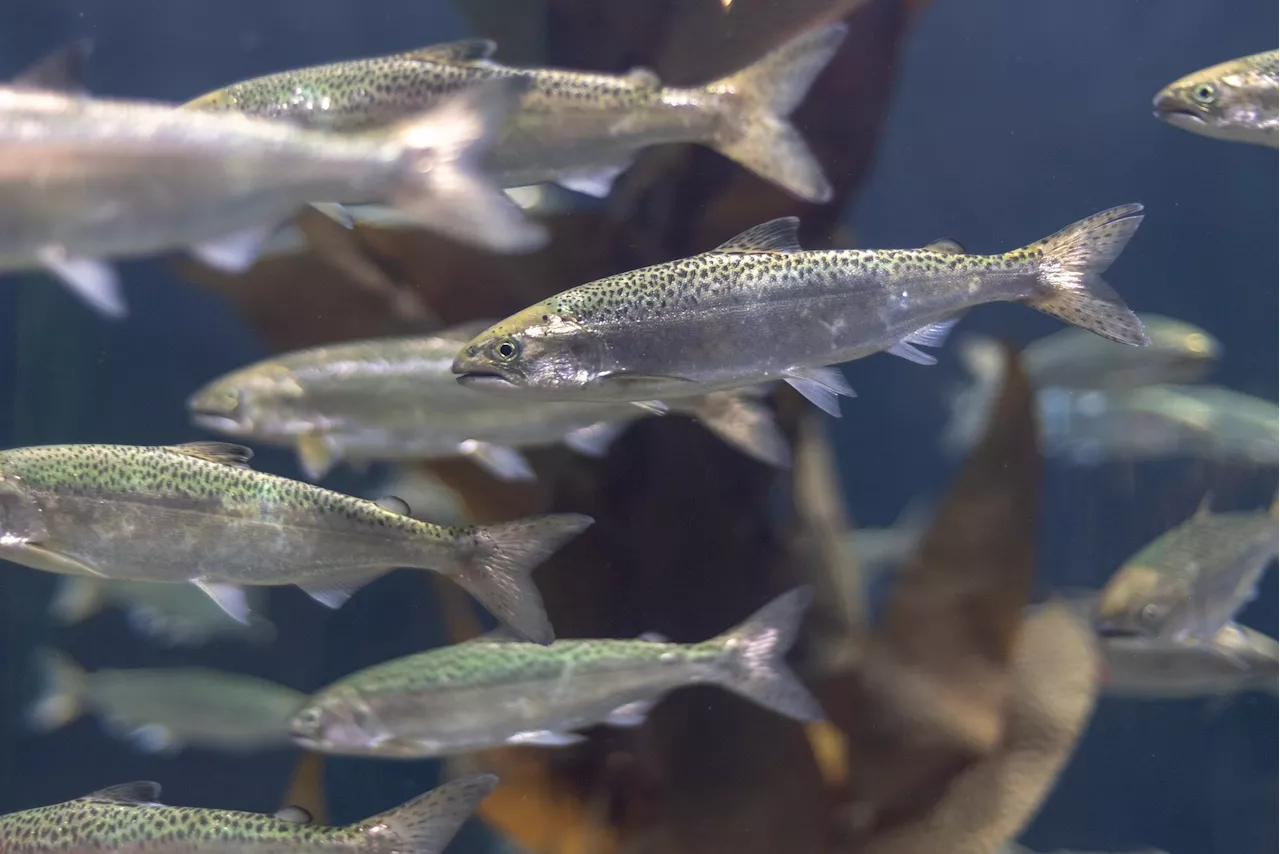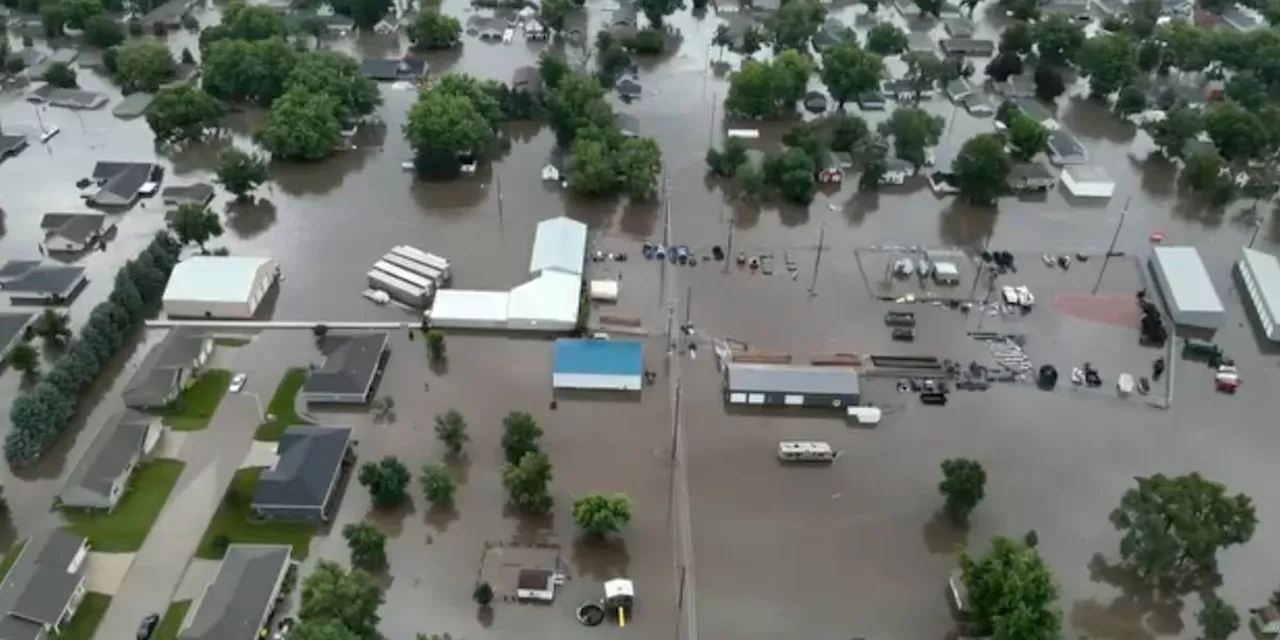A fraught and violent history for centuries disrupted Indigenous people’s lives in the Upper Midwest, barring them from traditional food gathering practices like spearfishing, hunting and harvesting wild rice.
John Baker holds a spear while getting ready for a night of fishing at the Chippewa Flowage on the Lac Courte Oreilles Reservation, Sunday, April 14, 2024, near Hayward, Wis. Spearfishing is a traditional Ojibwe method of harvesting fish such as walleye in the spring when the fish venture to shallow waters in the evening to spawn.
Baker says that his grandmother has an old map with the names and home locations of many people who once lived there, and that she always told him to protect this place. “That’s what we are. We’re protectors of the land,” he said.EDITOR’S NOTE: This is part of a series of on how tribes and Indigenous communities are coping with and combating climate change.
But the U.S. quickly broke those promises. The Wisconsin state government, in the course of creating their own laws over the course of the 19th and early 20th centuries while largely ignorant of federal treaties, imposed regulations on tribal members, often issuing them citations, confiscating equipment or even taking them to court if they hunted or fished without state licenses.
By the 1960s, a few Ojibwe individuals started resurfacing treaty documents of the past, and multiple tribal members purposely got arrested for spearfishing so the cases would go to court. In 1983, the Supreme Court ruled to reaffirm Ojibwe treaty rights on and off reservation land. In the process of affirming treaty rights, the state also had to collect more ecological knowledge than it had in the past to set safe catch limits and balance the resources among spearfishers and anglers. Loew said a former Department of Natural Resources official told her that “Indian treaty rights are one of the best thing that ever happened to the state, because it learned so much about the natural world.
United Kingdom Latest News, United Kingdom Headlines
Similar News:You can also read news stories similar to this one that we have collected from other news sources.
 Behind Upper Midwest tribal spearfishing is a long and violent history of denied treaty rightsA fraught and violent history for centuries disrupted Indigenous people’s lives in the Upper Midwest, barring them from traditional food gathering practices like spearfishing, hunting and harvesting wild rice.
Behind Upper Midwest tribal spearfishing is a long and violent history of denied treaty rightsA fraught and violent history for centuries disrupted Indigenous people’s lives in the Upper Midwest, barring them from traditional food gathering practices like spearfishing, hunting and harvesting wild rice.
Read more »
 Behind Upper Midwest tribal spearfishing is a long and violent history of denied treaty rightsA fraught and violent history for centuries disrupted Indigenous people’s lives in the Upper Midwest, barring them from traditional food gathering practices like spearfishing, hunting and harvesting wild rice.
Behind Upper Midwest tribal spearfishing is a long and violent history of denied treaty rightsA fraught and violent history for centuries disrupted Indigenous people’s lives in the Upper Midwest, barring them from traditional food gathering practices like spearfishing, hunting and harvesting wild rice.
Read more »
 Heat wave continues to boil the Midwest and East Coast while storms brew behind itAs the heat is expected to ease off, heavy rain, strong winds and some tornados are in the forecast for parts of the Midwest and the Northeast. Meanwhile, the heat wave is reaching into the South.
Heat wave continues to boil the Midwest and East Coast while storms brew behind itAs the heat is expected to ease off, heavy rain, strong winds and some tornados are in the forecast for parts of the Midwest and the Northeast. Meanwhile, the heat wave is reaching into the South.
Read more »
 Heat wave continues to boil the Midwest and East Coast while storms brew behind itAs the heat is expected to ease off, heavy rain, strong winds and some tornados are in the forecast for parts of the Midwest and the Northeast. Meanwhile, the heat wave is reaching into the South.
Heat wave continues to boil the Midwest and East Coast while storms brew behind itAs the heat is expected to ease off, heavy rain, strong winds and some tornados are in the forecast for parts of the Midwest and the Northeast. Meanwhile, the heat wave is reaching into the South.
Read more »
 Indigenous data sovereignty can help save British Columbia's wild salmonNon-Indigenous scientists increasingly realize that Indigenous data are key to solving today's environmental challenges.
Indigenous data sovereignty can help save British Columbia's wild salmonNon-Indigenous scientists increasingly realize that Indigenous data are key to solving today's environmental challenges.
Read more »
 Midwest flooding collapses rail bridge, forces evacuations and kills at least 1The bridge connecting North Sioux City, South Dakota, with Sioux City, Iowa, collapsed into the Big Sioux River late Sunday, an emergency manager said.
Midwest flooding collapses rail bridge, forces evacuations and kills at least 1The bridge connecting North Sioux City, South Dakota, with Sioux City, Iowa, collapsed into the Big Sioux River late Sunday, an emergency manager said.
Read more »
